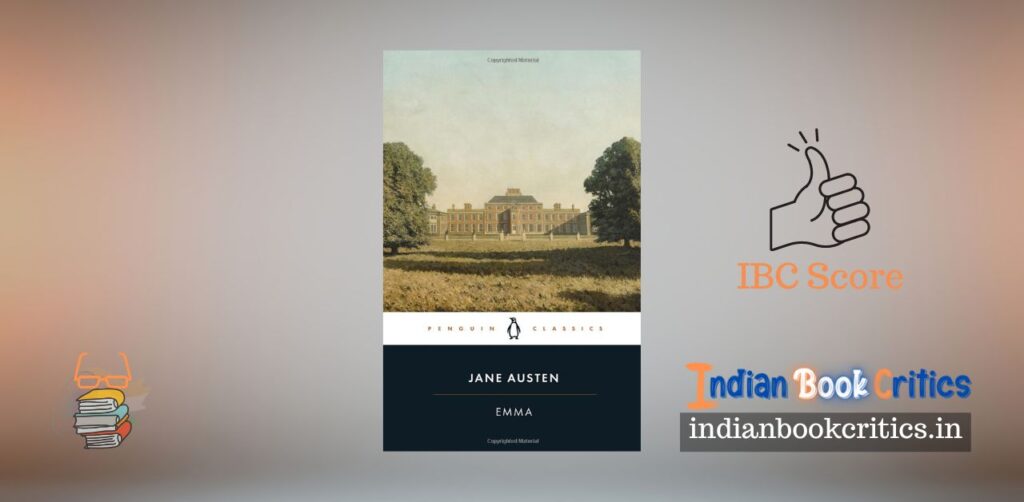Every reader of fiction who takes delight in reading classics must have read Emma, the masterpiece of early 19th-century literature. Emma, written by Jane Austen in 1815, is a novel that follows the life and romantic endeavours of Emma Woodhouse, the central character in the novel. The story develops with a backdrop of the fictional town of Highbury, England. In this novel, Jane Austen explores themes of love, marriage, social status, and self-improvement through the lens of Emma, a young, wealthy, and self-assured woman (though the self-assured part might need fresh scrutiny every time someone reads the novel).
At the beginning of the novel, Emma is introduced as a confident and independent woman who takes pride in her ability to manage the affairs of her father and household. This was a rare case at that time. A woman managing her father’s affair – something that enables her to equate herself with men, always stood distinct in 19th-century England when men were supposed leaders and women were just subordinates. Emma is content in her life and sees no need to marry, despite the societal expectations of a woman of her age and status. In this light, Emma as a novel is a sensational antithesis to the assumed social norms of the time. However, as the story progresses, Emma cannot keep herself aloof and turns in, more and more involved in the romantic lives of those around her, including her neighbour, Mr Knightley, and her close friend, Miss Harriet Smith. With this developing interest in the romantic lives of others, she begins to realize that she may have been wrong in her assumptions about love and marriage. Realisation dawns; she reevaluates her decisions; she considers her choices.
One of the standout aspects of Emma is its well-developed characters. As you read this book by Austen, you will realise that each character is distinct and believable, with their motivations, flaws, and desires that define (or justify) their actions. Austen expertly captures the nuances of human relationships and the various ways in which people interact with one another, romantically or otherwise. Emma, at times more than often, becomes the mouthpiece of Austen in delivering her opinions and views on the relationships of human beings. Emma, if you analyse the life of Austen herself, resembles the character Austen could be minus her marriage.
In terms of language and narrative, Emma stands apart without a doubt. Austen has used creativity, irony, satire, metaphors and other tools of the narrative very carefully (though it may come leisurely to the novelist). The dialogue in Emma is witty and intelligent, with Austen’s clever writing bringing the characters to life so much that readers of that time enjoyed, and we are still enjoying them! Moreover, the novel is also rich in detail, offering a vivid depiction of life in the early 19th century. It extends to people, places, and their mental and emotional appearance. The descriptions of the town of Highbury and the surrounding countryside are vivid and immersive, helping to bring the story to life.
As a social documentary, Emma was way ahead of Austen’s time. However, much to the despair of present-day feminists, Emma realises life is well-spent if we try not to persuade ourselves of anything that the heart does not approve of. Engaging, interacting and meeting with people always brings charm to life. Juxtaposing the work by Austen and that by Virginia Woolf, say To the Lighthouse or Mrs Dalloway, Emma is full, not dull, happy, adventurous and external as much as internal (within herself and outside). Woolf’s protagonists are within themselves and compared to this, very less visible outside. Austen might be a feminist with just causes and not so just because it looks ‘sexy’ or distinct among intellectuals.
To conclude, Emma might not be as popular as Pride and Prejudice. However, the novel is enjoyable and very much pleasing to read. Emma, as a character, is certainly not rich as Elizabeth. Nevertheless, within her limitations, she acts wise and mature and still manages to carve out her space for adventures. It is a delightful and engaging read, to say it again. The novel offers a compelling exploration of love, relationships, and self-discovery, all set against the backdrop of early 19th-century England. Whether you’re a fan of Austen’s work or simply looking for a well-written and engaging novel, Emma is sure to delight. Read it as a romantic novel or just as something new, you won’t feel disappointed! You can get a quality edition of this landmark work from Amazon India by following the link below.
Buy the novel now – click here to get a copy from Amazon.
Review by Parakashtha for Indian Book Critics
Emma by Jane Austen – Book Review
-
IBC Critical Rating
Summary
Emma by Jane Austen is a timeless classic! A romantic novel that will entertain readers any day!
